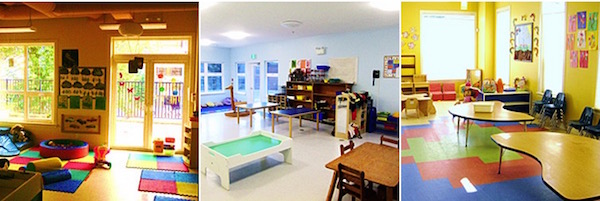22 Dec CBC hyped day care abuse that wasn’t

Spot the Violations
CBC has a revealing report this morning about how the Department of Community Services and Minister Joanne Bernard conspired to violate several parts of Nova Scotia’s Freedom of Information Act, so they could appear to be taking action on reports of violations at day care centres in the province.
DCS’s behaviour is of a piece with the way it responded to my FOIPOP requests for information about its highhanded treatment of Cape Breton’s Talbot House, the addiction treatment centre forced to close for a year after DCS promoted false allegations of abuse on the part of the centre’s director, Fr. Paul Abbass. A police investigation exonerated Abbass, and protests by graduates of the centre eventually forced the Dexter government to restore funding and relieve DCS and its disgraced minister, Denise Peterson-Rafuse, of responsibility for addiction treatment.
Despite this background of misbehaviour by DCS, Contrarian feels compelled to point out there was much less than met the eye in the CBC’s original story trumpeting “842 pages of violations” at “close to 400 child-care centres” in Nova Scotia.
Its most shocking revelation: “Workers at two day care centres in Nova Scotia failed to report suspected child abuse in the past two years.”
In fact, there was no suspicion of abuse at the two centres in question (which the CBC named), and the CBC was unable to confirm that any actual abuse had taken place. The type of suspected abuse was never stated—even though the term covers a vast territory, from trivial to horrific.
There was suspicion of abuse elsewhere—but we don’t know where. At home? At school? The CBC’s report is silent.
In short, the CBC’s new Halifax-based “investigative unit” portrayed two technical violations of reporting requirements in such a way as to lead a casual listener to believe actual abuse had taken place at two day care centres. Reporter Catharine Tunney even stopped passersby on the street outside the two centres, and reported they were “shocked at the news.” In fact, several protested they had always found the centre to be excellent and trustworthy.
This adds up to reckless disregard for the reputations of two community institutions. The CBC’s investigative unit appears to have been more concerned about hyping its own reputation for digging up dirt than for accurately representing the impugned organizations.
Also missing from the CBC’s report was any recognition of the picayune nature of many DCS requirements.
I guarantee you that most of the “violations” Tunney trumpeted were trivial. Underfunded community facilities are held to a standard more appropriate to new, Class A office space than to facilities used by active children or people in care. One DCS-funded facility I know of was cited for a bit of rust showing through the paint on a baseboard radiator cover.
There isn’t a DCS-funded facility in Nova Scotia where a diligent inspector could not find dozens of so-called violations—none of which would have any bearing on the health and safety of clients and staff.
Another bit of missing context: As the YWCA points out, day care centres help children, families, and mothers thrive. They are not hotbeds of danger; They are centres of community health and wellbeing.
In short, the public learned nothing that advanced understanding of day care facilities from the CBC’s report, and many listeners came away with impressions that were false and defamatory.
